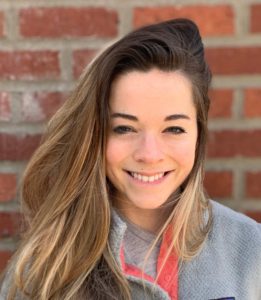 My Work
My Work
I believe that most of us hold on to beliefs, consciously or unconsciously, that get in the way of our growth. I also believe that all of us possess what the psychologist Carl Rogers called the “self-actualizing tendency” – that is, we each have the innate predisposition and inner knowing to move towards growth, when we feel entirely free to do so. My goal for therapy is for us to build a therapeutic relationship full of empathy, mutual honesty, and acceptance. This is the type of environment in which clients become free to explore the depth and breadth of who they really are. Together, we will identify and challenge old barriers to freedom and growth.
My Belief
Throughout childhood and adolescence, we hear and internalize messages about what it means to be a “good person.” (For example, perhaps you learned that “good people” are Strong. Faithful. Resilient. Giving. Smart. Wealthy. Busy. Beautiful. Confident. Thin. Straight. White. Etc.) We come to believe (falsely) that our worthiness, as humans, is conditional, derived from the extent to which we meet these conditions. While these “conditions of worth” first come from family, peers, religious organizations, or the popular culture, we often repeat them to ourselves. Sometimes, we repeat them to ourselves multiple times per day. Conditions of worth are not only a source of pain, but they present real barriers to growth. They can manifest as addictive behaviors, obsessive thoughts, or constant low-level feelings of guilt, irritation, or fear. Therapy is a process of unlearning these conditions of worth and the associated thoughts, feelings, and behaviors. Therapy is a process of becoming “unstuck.”
My Background
I earned my undergraduate degrees in philosophy and psychology from Hendrix College, and my master’s in counseling psychology from University of Wisconsin – Madison. While earning my master’s, I worked with teens and adults with concerns such as depression, anxiety, substance use disorder, and relationship concerns. In the three years since earning my master’s degree, I have explored a career as a mental health researcher. I have extensive academic expertise in the areas of disordered eating and body image, as well as on the relationship between social media and mental health. I use the empirically-supported health at every size (HAES) approach in working with all clients, particularly clients with concerns related to food or body.
My Self
Like many therapists, my knowledge about mental illness is not only professional, but personal. After graduating college, I began recovery from addiction. Years later, I began recovery from disordered eating as well. My personal experience with mental illness has always been augmented by curiosity: When mental illness comes, why does it come? And when it fades, why does it fade? Although each person’s journey is unique – indeed, this is one of the many things that makes therapy so interesting – on a core level, the path that I walk with clients is a path I have also walked myself.
Contact
Please use the contact form below to learn about Anna’s availability.


